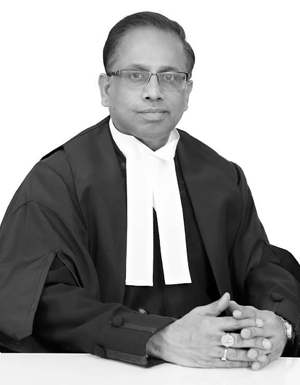
Meet Justice K.V. Viswanathan and his Notable Judicial decisions
Justice K.V. Viswanathan, born on May 26, 1966, in Kalpathy, Kerala, is a sitting judge of the Supreme Court of India, directly elevated from the Bar in May 2023—a rare distinction, making him only the tenth advocate in Indian history to achieve this honor. He is widely recognized for his legal acumen, having built a reputation as a Senior Advocate and as Additional Solicitor General of India (2013–2014), and for his extensive work as amicus curiae in several critical constitutional and public interest cases.
Justice Viswanathan’s journey began with a law degree from Coimbatore Law College, after which he moved to Delhi in 1988 to practice in the Supreme Court. He worked under legal luminaries like K.K. Venugopal and C.S. Vaidyanathan, and was designated Senior Advocate in 2009. His advocacy career included representing parties in high-profile matters such as the challenge to WhatsApp’s privacy policy and the marriage equality petitions, where he argued for the rights of transgender persons and recognition of trans marriages.
Landmark Judgments and Contributions
1. Independence of Investigative Agencies:
As amicus curiae, Justice Viswanathan played a pivotal role in cases challenging the repeated extension of tenures for CBI and ED Directors. He argued that such extensions undermine the independence of these investigative agencies, a view that influenced the Supreme Court’s stance on protecting institutional autonomy.
2. Judicial Appointments and Lower Courts:
He assisted the Supreme Court in monitoring the process of judicial appointments to lower courts in several states, ensuring transparency and merit-based selections. This contribution has had a lasting impact on the efficiency and integrity of the subordinate judiciary.
3. Digital Rights and Privacy:
Justice Viswanathan represented the Internet Freedom Foundation in the Supreme Court challenge to WhatsApp’s privacy policy, advocating for stronger data protection and privacy rights for Indian citizens.
4. Marriage Equality and Trans Rights:
He was a leading voice in the Supreme Court’s marriage equality hearings, especially championing the rights of transgender persons to marry, thus advancing the discourse on LGBTQ+ rights in India.
Since his elevation to the Supreme Court, Justice Viswanathan has continued to author judgments reflecting his commitment to constitutional values, individual rights, and institutional integrity. With an expected tenure extending to 2031, and likely to become Chief Justice of India in 2030, his influence on Indian jurisprudence is poised to grow significantly.












comments